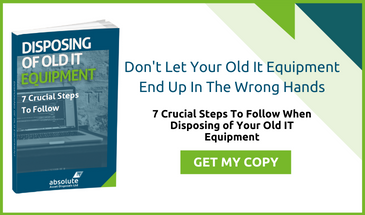
Zero Waste is a new and innovative approach to managing the disposal and reuse of outdated, broken, and faulty IT assets. The movement aims to drastically cut down the masses of plastics, rare earth metals, and valuable, still-working components that end up thrown away, burned, or landfilled each year by British businesses each year.
Growing steadily in popularity during the last decade and exploding in use during the COVID-19 global pandemic, Zero Waste emphasises the importance of finding use and purpose for everything that we buy or consume for as long as reasonably possible.
Businesses and homes are encouraged to reuse, repair, upgrade, and refit working machines where possible. If not, responsible recycling schemes can help to turn unusable electronic rubbish back into new, up-to-date items.
Donation and exchange schemes can also form part of a Zero Waste strategy. Many schools, libraries, and less fortunate households can benefit from refurbished and 'upcycled' IT assets from business donors.
What Are The Advantages Of A Zero Waste Approach To IT Asset Management?
Zero Waste philosophy applies well to corporate IT models that rely on many different units to work. By keeping a stock of replacement parts in place and salvaging older machines, the average operational lifespan of each purchase extends - resulting in a vastly better lifetime value gained from each purchase.
Computers and laptops are modular in design. They're meant to be upgraded and have faulty parts swapped out and replaced over time, minimising wastage. Often, unit faults and bottlenecks are down to just one part. Power supplies, RAM, cases, keyboards, mice, motherboards, processors, and disk drives can all be quickly replaced by trained technicians with better (or working) versions. Multiple faulty units might be reformable into a single, working machine.
The parts that do reach the end of their working lives (or that are damaged beyond salvage) can be recycled by sending them to a dedicated e-waste processor, such as Absolute ITAD. Unusable e-waste – including individual components as much as whole computers – is broken down into raw materials for recycle - eliminating the risk of pollution and saving the earth's natural resources.
Absolute ITAD also consider carefully whether a machine might still be worth saving before scrapping it completely. Inexperienced owners often overlook simple solutions. It's worth considering the energy, materials, and labour spent on refurbishing IT components and assets, too.
The Dangers Of Zero Waste
However, not every used IT component or asset is safe to recycle, resell, or donate. While they're some of the easiest parts to format and refit, reusing old hard drives and storage media (e.g. USB sticks) should be treated with caution.
Why? Even after files are 'deleted', confidential user data and files remain recoverable and accessible to those with commonplace, off-the-shelf recovery software. Second-hand business HDDs are a prime target for hackers, phishers, and identity thieves, as well as being a source of legal liabilities and fines for companies under the GDPR (2018).
Don't give up on reusing disk drives, though. With professional-quality data cleansing and formatting from Absolute IT, storage media can be restored to its out-of-the-box state - so recycling is fine! Special programs can permanently overwrite the entries in the file table to properly destroying data, rather than just hiding it away. Sanitisation needs to be performed every time the device is transferred between users, however. Refurbishment companies won't be able to take HDDs that aren't certified as clean.
Data Sanitisation And IT Asset Recycling From Absolute ITAD
If you’re interested in implementing a Zero Waste strategy for your company, talk to Absolute ITAD about safe and sustainable ways you can do it. Our combined, tracked IT disposal and renovation service can transform and streamline your business while protecting your data. Call or email us today for a quote.
Image Source: Pixabay











